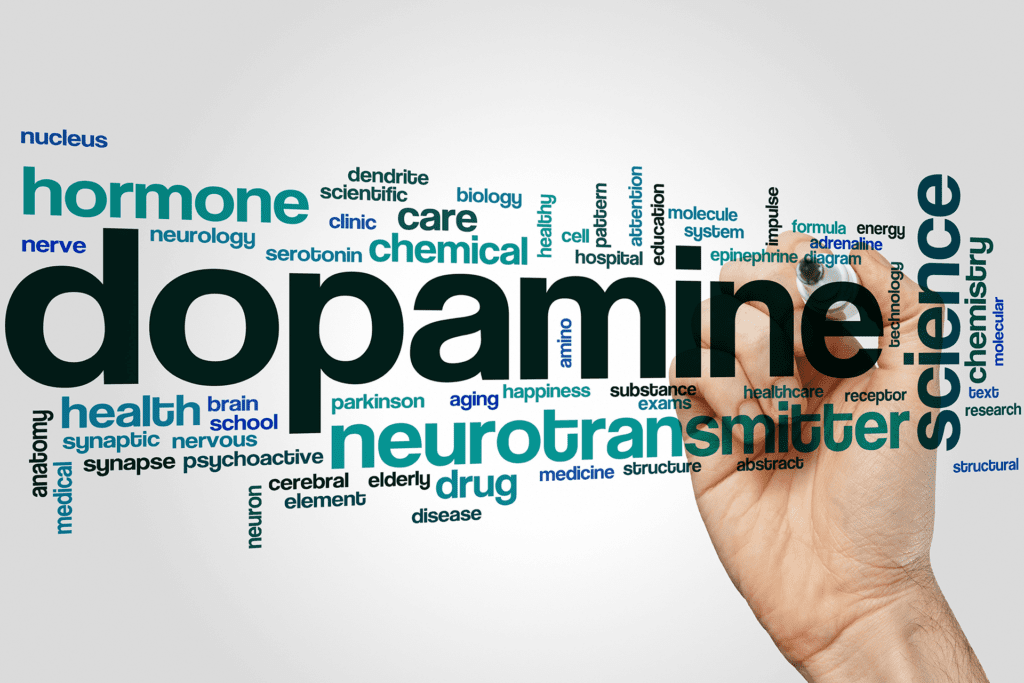Dopamine is a vital chemical messenger that your nervous system uses to send messages between nerve cells. It is often called the “motivation molecule” because it actually increases desire and motivation. Its impact on human behavior is significant — with sound benefits when we have enough, and serious problems when we are deficient.
Making sure you get enough dopamine can help when dealing with negative behavior patterns, mental health issues, and substance addiction. Let’s learn more about dopamine and the 10 best ways to increase dopamine levels naturally for better overall health and well-being.

THE 10 BEST WAYS TO INCREASE DOPAMINE LEVELS NATURALLY
Your body produces dopamine in the brain, but certain substances and factors contribute to healthy dopamine levels and production. Making sure you add these foods and activities to your sober lifestyle is a great way to boost your dopamine production for a better quality of life.
1) Eat Plenty of Protein
Protein is a natural source of important amino acids your body needs for all kinds of different functions. Add these things to increase dopamine to your diet and for more protein :
- Chicken
- Beef
- Turkey
- Seafood
- Eggs
- Bananas
- Almonds
- Avocados
- Pumpkin seeds
- Sesame seeds
2) Reduce Your Intake of Saturated Fat
Too much saturated fat, like animal fat, butter, full-fat dairy, palm oil and coconut oil, can disrupt your production of dopamine. They are already unhealthy for other reasons, so this is just one more reason to limit your intake.
3) Get Plenty of Sunshine and Vitamin D
Sunlight is a great source of vitamin D, which is vital for healthy dopamine levels. Even a vitamin D supplement is a good option, as an estimated 50% of all people are vitamin D deficient.
4) Drink Good Coffee
While poor-quality coffee or too much coffee can be detrimental, high-quality coffee is a good source of natural caffeine, which triggers dopamine production. Enjoy a good cup of coffee each morning to start the day off right.
5) Meditate
Research shows that meditation actually increases your dopamine production. A daily period of meditation can help you relax and handle stress better, increasing dopamine levels while contributing to your overall health.
6) Stand Up
Believe it or not, the simple act of standing can trigger dopamine production. Conversely, prolonged sitting and laziness leads to chronic fatigue and increased weight gain. Try standing more at work or at home while watching television.
7) Exercise
Regular periods of exercise increase dopamine production and actually slow the use of it, making it available for prolonged periods of time. A healthy walk each day is all you need to boost dopamine production.
8) Use Probiotics
Probiotics not only improve gut health for better digestion, they help your body better process foods, including those that increase dopamine production. Better digestion and health is also a natural trigger for dopamine in the brain.
9) Get Plenty of Sleep
Dopamine is produced in large quantities in the morning and lessens throughout the day, trending down more toward bedtime. Not getting enough sleep can disrupt this natural cycle and actually reduce dopamine production.
10) Drink Green or Black Tea
Both green and black tea contain amino acids that directly contribute to the production of dopamine in the brain. They can also contain less caffeine than coffee, which can help those who get jitters from too much caffeine.
The Benefits of Dopamine
Dopamine is the primary driver of the brain’s reward system. Many drugs are so addictive because they cause a quick dopamine boost in the brain, making us feel good. Making sure you have enough dopamine in your system through healthy, natural means increases your well-being in practically every way.
Blood tests can measure dopamine levels in the blood, but this is not an indicator of how your brain manufactures or responds to it. Therefore, physicians rarely test for dopamine levels, choosing rather to look for symptoms that can be attributed to low dopamine. When dopamine levels are high, or healthy, you can recognize benefits including:
- Increased enthusiasm
- Higher motivation
- Stronger drive to be productive
- Reduced drug addiction and dependence
- Improved cognition function
- Faster learning
- Better long-term memory and working memory
- Increased focus and concentration
- Increased creativity
- Improved mood
- Reduced fear
- Increased social bonding
- Stronger relationships
- Increased tolerance to pain
Increased Dopamine Levels FAQs
Does meditation increase dopamine levels?
Yes, meditation is a great way to boost dopamine levels in the brain, providing a sense of well-being and relaxation as a result.
What is a low dopamine morning and how does it work?
A low dopamine morning is a strategy to increase your dopamine levels throughout the day by “fasting” from dopamine-rich activities like cell phone use and seeking natural light right when you wake up.
Can you increase dopamine with food?
Yes, eating a high-protein diet with foods like meat and eggs can help significantly in stabilizing dopamine levels.
How can I learn how to regulate dopamine levels?
You can develop a habit of practicing dopamine-inducing lifestyle changes like eating protein-rich foods, taking probiotics, and exercising.

GET HELP WITH MOOD DISORDERS AT GRATITUDE LODGE
Mood disorders can appear apart from substance abuse or as a part of an addiction. The “high” associated with many drugs is why some victims become addicted. Naturally increasing dopamine production can help with combatting mood disorders and substance abuse. Gratitude Lodge can help those with mood disorders or co-occurring disorders at our addiction treatment centers in Southern California.
Contact us today if you or a loved one needs help conquering a mood disorder or substance addiction. Let us help you find your new beginning.




























